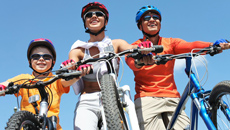It would be a better idea to read paper books before sleeping as use of e-readers can adversely impact overall health, alertness and body clock that synchronises the daily rhythm of sleep, say researchers.
Exposure to light during evening and early night-time hours suppresses release of the sleep-facilitating hormone melatonin and shifts the circadian clock, making it harder to fall asleep at bedtime, the team of researchers from Brigham and Women's Hospital (BWH) found.
"Electronic devices emit light that is short-wavelength-enriched light which has a higher concentration of blue light than natural light," said Anne-Marie Chang, assistant professor of biobehavioral health at Pennsylvania State University.
"This is different from natural light in composition, having a greater impact on sleep and circadian rhythms," Chang said.
For the study, Chang and her colleagues observed 12 adults for two weeks, comparing when the participants read from an iPad serving as an e-reader before bedtime to when they read from a printed book.
The researchers monitored the participants' melatonin levels, sleep and next-morning alertness, as well as other sleep-related measures.
Participants took nearly 10 minutes longer to fall asleep and had a significantly lower amount of REM (rapid eye movement) sleep after reading from a light-emitting e-reader than they did after reading from a print book.
"The most surprising finding was that individuals using the e-reader would be more tired and take longer to become alert the next morning," Chang said.
This has real consequences for daytime functioning, and these effects might be worse in the real world as opposed to the controlled environment we used, the authors added.
Since more people are choosing electronic devices for reading, communication and entertainment, particularly children and adolescents who already experience significant sleep loss, epidemiological research evaluating the long-term consequences of these devices on health and safety is urgently needed, the authors said.
The findings were published in the journal Proceedings of the National Academy of Sciences.






